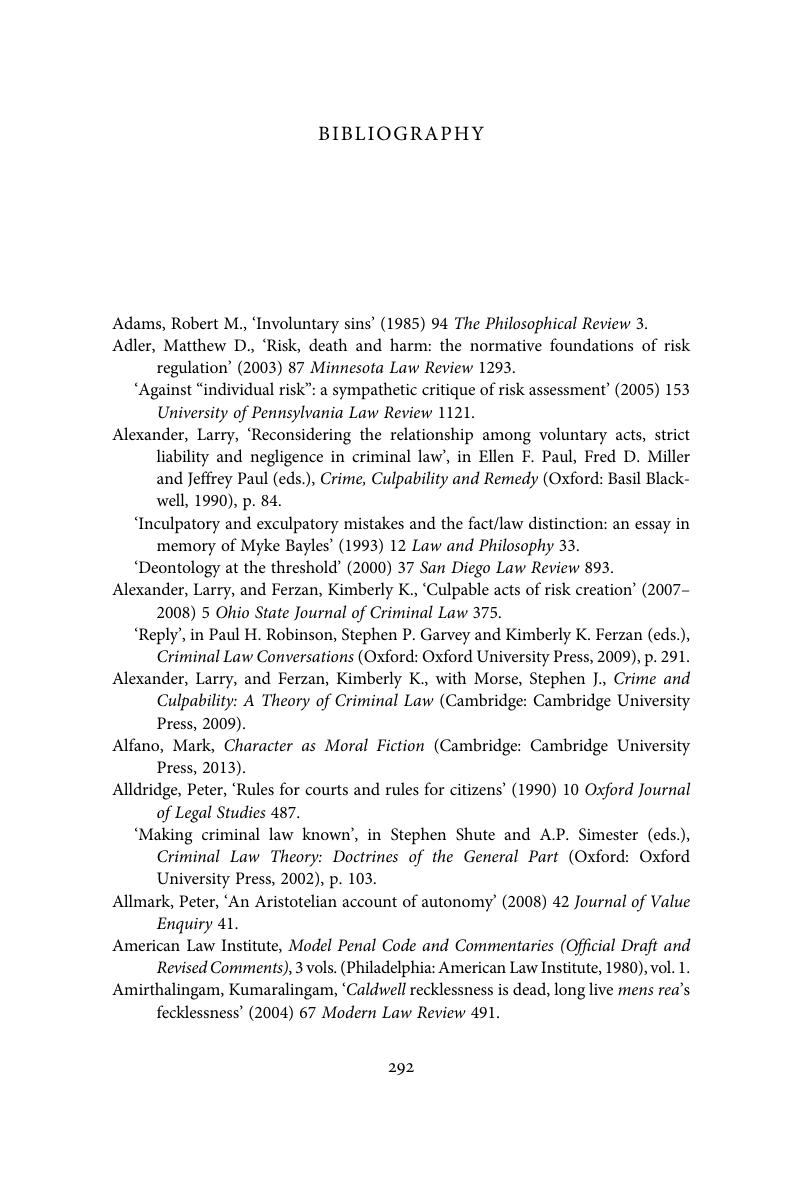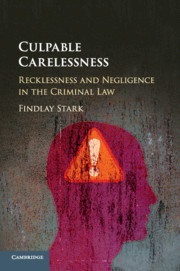Book contents
- Culpable Carelessness
- Culpable Carelessness
- Copyright page
- Dedication
- Contents
- Book part
- Glossary
- Additional material
- Additional material
- 1 Introduction
- 2 The Doctrinal Trend towards the Standard Account
- 3 Consistency in Definition
- 4 From Awareness to Belief
- 5 Beyond Belief: Knowledge and Awareness of Risk
- 6 The Significance of Awareness of Risk
- 7 Culpability beyond Awareness of Risk
- 8 Negligence as Failure of Belief
- 9 Some Practicalities
- Bibliography
- Index
- References
Bibliography
Published online by Cambridge University Press: 27 January 2017
- Culpable Carelessness
- Culpable Carelessness
- Copyright page
- Dedication
- Contents
- Book part
- Glossary
- Additional material
- Additional material
- 1 Introduction
- 2 The Doctrinal Trend towards the Standard Account
- 3 Consistency in Definition
- 4 From Awareness to Belief
- 5 Beyond Belief: Knowledge and Awareness of Risk
- 6 The Significance of Awareness of Risk
- 7 Culpability beyond Awareness of Risk
- 8 Negligence as Failure of Belief
- 9 Some Practicalities
- Bibliography
- Index
- References
Summary

- Type
- Chapter
- Information
- Culpable CarelessnessRecklessness and Negligence in the Criminal Law, pp. 292 - 315Publisher: Cambridge University PressPrint publication year: 2016



